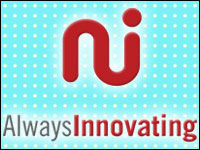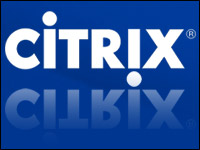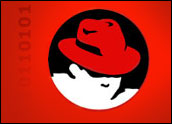
Sun Microsystems and Dell have put aside their longstanding rivalry and teamed up to offer business customers Sun’s Solaris 10 and OpenSolaris operating systems preloaded on Dell’s PowerEdge servers.
The joint announcement Wednesday at Oracle’s OpenWorld conference in San Francisco follows a similar deal Sun inked with IBM back in August and a push Dell began earlier this year to provide its customers with more open source options.
“Dell’s offering of Solaris redefines the market opportunity for both companies,” said Jonathan Schwartz, president and CEO, Sun Microsystems. “The relationship gives Dell broader reach into the global free software community with Solaris and OpenSolaris and gives Sun access to channels and customers across the volume marketplace.”
Dealing Titans
Sun’s agreement with Dell is a multi-year distribution deal under which Dell will license Sun’s Solaris 10 and OpenSolaris operating systems for use on its rack and blade servers. The hardware maker will also sell Sun’s middleware and desktop virtualization technology.
Support-wise, Dell will serve as the conduit for Solaris support from Sun’s online support setup. Users will be able to download Sun’s free OpenSolaris OS from the Dell Web site. Solaris becomes the fourth OS supported on Dell servers. Currently, the hardware manufacturer supports Windows, Red Hat and Suse Linux OSes on its servers.
In the past, Sun and Dell have been serious competitors, but Sun is trying to push a sort of open standard and open ecosystem, which could be why Dell was interested in making a deal, said Ray Wang, a Forrester Research analyst.
“Sun said ‘Hey, how can we take something that would typically be considered proprietary and then take anything proprietary and kind of blow it out?'” he told the LinuxInsider.
Sun apparently has been shopping the idea around to some of its other rivals, all of which are major players in the server market: HP, Oracle and IBM. Until Wednesday, the only confirmed deal was with IBM, which offers Solaris on its x86-based IBM System x and BladeCenter servers, including BladeCenter HS21 and LS41; and System x3650, x3755 and x3850.
“They’ve gone out to all the different [companies] you’d consider as rivals and said ‘Hey, look let’s push this out into the ecosystem. Let’s make this open.’ And that’s really why Dell does not consider this a rivalry actually but as a partnership,” Wang continued.
Opening the Way
Since Sun took Solaris down the open source path more than two years ago, some 12 million free licenses for Solaris have been distributed.
The Dell deal has been in the works for a while, Schwartz wrote in a blog post on the Sun Web site. It was driven in part by feedback from users who said they were running Solaris on Dell machines and asked if the two companies could come together to “make the experience a seamless one.”
“Dell and Sun will work shoulder to shoulder to support joint customers. We’ll be making joint investments to build new solutions for customers, working to expand the already large Solaris ISV community for Dell systems and broadly work together to build new business. For customers, partners, Sun and Dell — win/win/win/win,” Schwartz continued.
There are a lot of benefits for Dell on the technology side, Wang explained, because they are looking at the opportunity to expand virtualization and other technologies. Meanwhile, Sun achieves its goal of pushing out its technology to an ever increasing audience of users.
“There’s a lot of interesting technologies from Sun coming, especially on the virtualization front, that are really important, particularly some of the work they’ve done making Solaris easier to use. In both of those areas is where [Sun and Dell] have seen a lot of synergy,” he stated.
“Sun’s not about selling boxes anymore,” Wang concluded. “It’s focused on pushing out these two software and two technologies. I think they’re really trying to expand the openness of the platform, expand the number of users, expand the set of partners and ecosystems that are out there.”




















































